第23章 THE AGE OF THE DICTATORS(4)
In the meantime Paraguay, spared from such convulsion as racked its neighbor on the east, dragged on its secluded existence of backwardness and stagnation. Indians and half-castes vegetated in ignorance and docility, and the handful of whites quaked in terror, while the inexorable Francia tightened the reins of commercial and industrial restriction and erected forts along the frontiers to keep out the pernicious foreigner. At his death, in 1840, men and women wept at his funeral in fear perchance, as one historian remarks, lest he come back to life; and the priest who officiated at the service likened the departed dictator to Caesar and Augustus!
Paraguay was destined, however, to fall under a despot far worse than Francia when in 1862 Francisco Solano Lopez became President. The new ruler was a man of considerable intelligence and education. While a traveler in Europe he had seen much of its military organizations, and he had also gained no slight acquaintance with the vices of its capital cities. This acquired knowledge he joined to evil propensities until he became a veritable monster of wickedness. Vain, arrogant, reckless, absolutely devoid of scruple, swaggering in victory, dogged in defeat, ferociously cruel at all times, he murdered his brothers and his best friends; he executed, imprisoned, or banished any one whom he thought too influential; he tortured his mother and sisters; and, like the French Terrorists, he impaled his officers upon the unpleasant dilemma of winning victories or losing their lives. Even members of the American legation suffered torment at his hands, and the minister himself barely escaped death.
Over his people, Lopez wielded a marvelous power, compounded of persuasive eloquence and brute force. If the Paraguayans had obeyed their earlier masters blindly, they were dumb before this new despot and deaf to other than his word of command. To them he was the "Great Father," who talked to them in their own tongue of Guarani, who was the personification of the nation, the greatest ruler in the world, the invincible champion who inspired them with a loathing and contempt for their enemies. Such were the traits of a man and such the traits of a people who waged for six years a warfare among the most extraordinary in human annals.
What prompted Lopez to embark on his career of international madness and prosecute it with the rage of a demon is not entirely clear. A vision of himself as the Napoleon of southern South America, who might cause Brazil, Argentina, and Uruguay to cringe before his footstool, while he disposed at will of their territory and fortunes, doubtless stirred his imagination. So, too, the thought of his country, wedged in between two huge neighbors and threatened with suffocation between their overlapping folds, may well have suggested the wisdom of conquering overland a highway to the sea. At all events, he assembled an army of upwards of ninety thousand men, the greatest military array that Hispanic America had ever seen. Though admirably drilled and disciplined, they were poorly armed, mostly with flintlock muskets, and they were also deficient in artillery except that of antiquated pattern. With this mighty force at his back, yet knowing that the neighboring countries could eventually call into the field armies much larger in size equipped with repeating rifles and supplied with modern artillery, the "Jupiter of Paraguay" nevertheless made ready to launch his thunderbolt.
The primary object at which he aimed was Uruguay. In this little state the Colorados, upheld openly or secretly by Brazil and Argentina, were conducting a "crusade of liberty" against the Blanco government at Montevideo, which was favored by Paraguay.
Neither of the two great powers wished to see an alliance formed between Uruguay and Paraguay, lest when united in this manner the smaller nations might become too strong to tolerate further intervention in their affairs. For her part, Brazil had motives for resentment arising out of boundary disputes with Paraguay and Uruguay, as well as out of the inevitable injury to its nationals inflicted by the commotions in the latter country; whereas Argentina cherished grievances against Lopez for the audacity with which his troops roamed through her provinces and the impudence with which his vessels, plying on the lower Parana, ignored the customs regulations. Thus it happened that obscure civil discords in one little republic exploded into a terrific international struggle which shook South America to its foundations.
In 1864, scorning the arts of diplomacy which he did not apparently understand, Lopez sent down an order for the two big states to leave the matter of Uruguayan politics to his impartial adjustment. At both Rio de Janeiro and Buenos Aires a roar of laughter went up from the press at this notion of an obscure chieftain of a band of Indians in the tropical backwoods daring to poise the equilibrium of much more than half a continent on his insolent hand. But the merriment soon subsided, as Brazilians and Argentinos came to realize what their peril might be from a huge army of skilled and valiant soldiers, a veritable horde of fighting fanatics, drawn up in a compact little land, centrally located and affording in other respects every kind of strategic advantage.
When Brazil invaded Uruguay and restored the Colorados to power, Lopez demanded permission from Argentina to cross its frontier, for the purpose of assailing his enemy from another quarter. When the permission was denied, Lopez declared war on Argentina also.